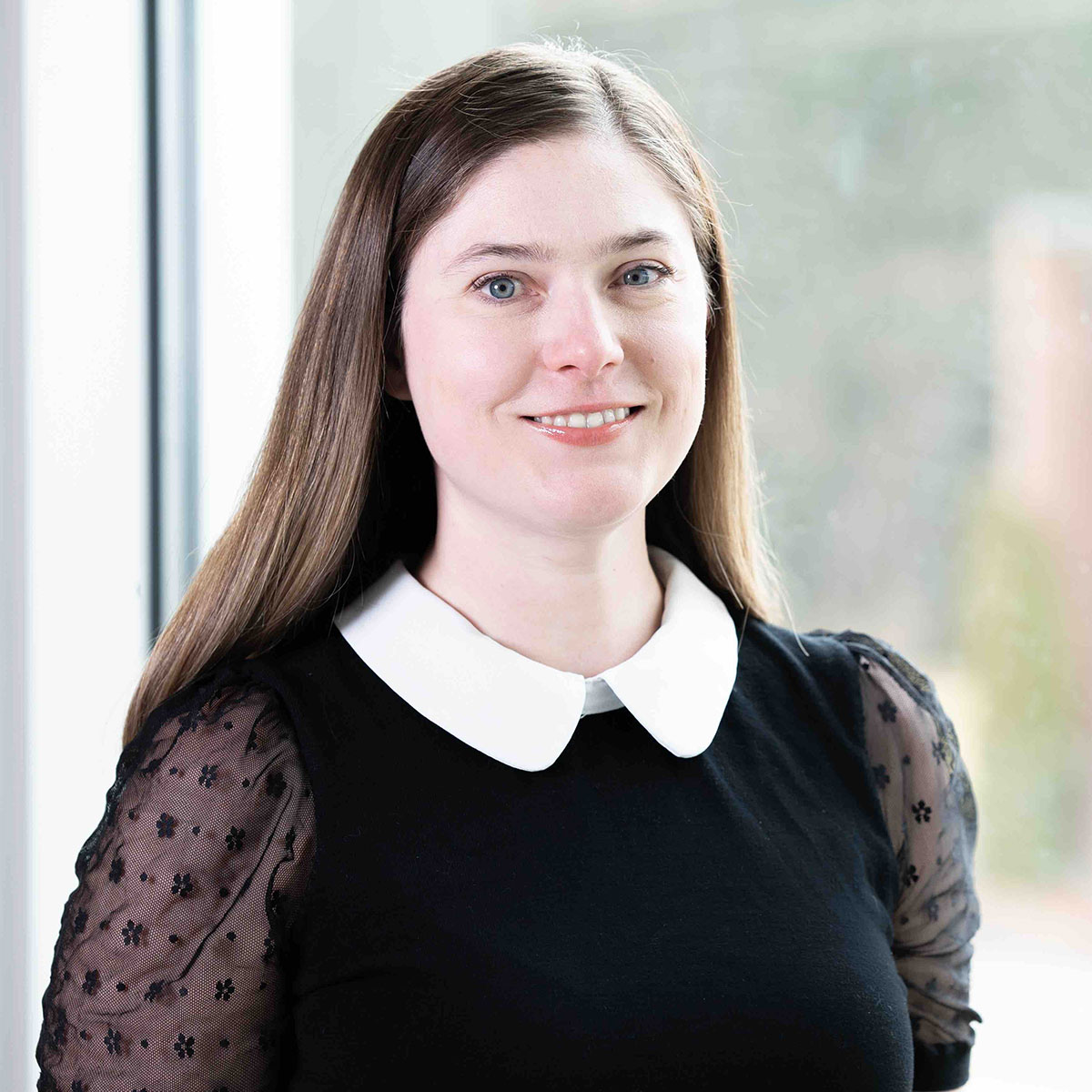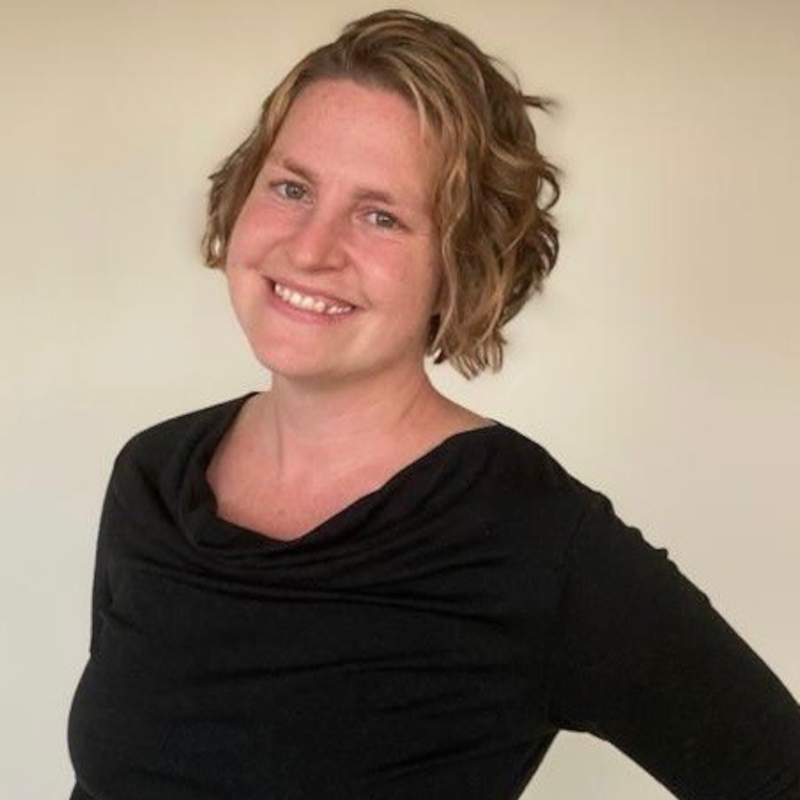Center Staff
Katherine Himes, Ph.D. practices muddy boots science policy. Her expertise includes natural resources, collaborative governance, research partnerships, science diplomacy and international development. Dr. Himes has developed programs, policies and collaborations connected to water, energy, forests, rangelands, fire, disaster risk reduction, higher education, women in science, technology transfer and economic growth. Her work spans local, state, federal and international levels.
Currently, Dr. Himes is co-chair of the U.S. National Academies Roundtable on Global Science Diplomacy, associate editor of the journal Science & Diplomacy, vice chair of the University Network on Collaborative Governance (UNCG) and president of the Boise Committee on Foreign Relations (BCFR) board of directors. She also serves on grant review panels for the U.S. National Science Foundation, National Academy of Sciences and Department of State.
Before joining the McClure Center in 2017, Dr. Himes was an American Association for the Advancement of Science (AAAS) Science & Technology Policy Fellow. In the U.S. Foreign Service, she served as regional science advisor at the U.S. Agency for International Development (USAID) Mission to Central Asia and supported science and technology in five countries of the former Soviet Union: Kazakhstan, Kyrgyzstan, Tajikistan, Turkmenistan and Uzbekistan, as well as Afghanistan. While an AAAS Fellow based at USAID Washington, she led scientific and engineering partnerships between the U.S. and Pakistan; built entrepreneurship programs with researchers in Morocco, Pakistan and southern African countries; supported USAID missions through the use of science, technology and science-based policy and was a member of the U.S. delegation to the United Nations Committee on Science & Technology for Development. Dr. Himes worked across USAID and the U.S. Department of State to integrate science-based approaches into development and diplomacy, both bilaterally and multilaterally. Her innovative approach to development and diplomacy was recognized with multiple USAID awards.
Prior to her time in Washington, Dr. Himes served as special assistant to the provost at the University of Minnesota during a major strategic positioning initiative. In this capacity, she led research, science and education policy efforts, working closely with students, faculty, staff, leadership, alumni, the Board of Regents and the community. Dr. Himes received several awards for her inclusive leadership.
Dr. Himes earned a doctorate and bachelor's in neuroscience at the University of Minnesota, and an MBA in entrepreneurship at the University of Wisconsin-Madison.
Ph.D., Neuroscience, University of Minnesota, 2007
MBA, Entrepreneurship, University of Wisconsin-Madison, 2001
B.S., Neuroscience, University of Minnesota, 1999
C Callahan and KE Himes (2022). "Natural Resource Policy and Collaborative Processes." Idaho Law Review 58 (1): 74-90.
KE Himes (January 2022). “A Model for Transboundary Water Cooperation: Perspectives from a Science Diplomat.” Sustainable Development for the Americas: Science, Health, Engineering Policy and Diplomacy Proceedings, Chapter 6: 289-296.
A Maas and KE Himes (December 2021). “Recreation and Tourism Report.” Idaho Climate-Economy Impacts Assessment.
KE Himes (Sept. 2021). “Fuzz.” Science. 373 (6559): 1079-1080.
KE Himes. (Nov. 2017). “Uzbekistan: A Brief Primer.” Interrupter Blog.
KE Himes (Sept. 2017). “The Fear Factor.” Science 357: 964-965.
AM Slaughter and KE Himes (May 2017). “Science and International Development Policy.” Project Syndicate.
KE Himes (Apr. 2017). “Promoting Water Security in Central Asia through International Research Partnerships.” Journal of Diplomacy and International Relations.
FA Carrero-Martinez, KE Himes and A Douraghy (Feb. 2017 electronic copy; Mar. 2017 hard copy). “Toward a Knowledge-Based Society: The Legacy of Science and Technology Cooperation between Pakistan and the United States.” Science & Diplomacy.
KE Himes, BL Kinder and LA Peterson (July 2016 electronic copy; Sept. 2016 hard copy). “U.S. Forest Service Helps Foster Protected Landscape Management in Central Asia.” Science & Diplomacy.
KE Himes (July 2015). “Letter from the Feld: Science and Culture Collide: Living and Working as a Science Diplomat in Central Asia.” Science & Diplomacy.
KE Himes (Dec. 2014). “The Scientist-Diplomat.” Esquire.kz (published in Russian)
KE Himes (Aug. 2014). “The Muddy Boots Scientist.” American Association of University Women Blog.
KE Himes (Dec. 2013). “A Report from Kazakhstan.” American Association for the Advancement of Science “Science on the Fly.”
KE Himes (Aug. 2013). “A Fresh Approach to North-South Collaboration.” The World Academy of Sciences 24 (4).
A Dehgan and EW Colglazier (Dec. 2012). “Development Science and Science Diplomacy.” Science & Diplomacy.
KE Himes, KA Klukas, and KA Mesce (2007). “Hormone-Dependent Expression of Fasciclin II during Ganglionic Migration and Fusion in the Ventral Nerve Cord of the Moth, Manduca sexta.” Journal of Comparative Neurology 509: 319-39.
- University of Wisconsin Forward under Forty Alumni Award Recipient, 2017
- National Science Foundation Global Women’s Scholars Network Summit Leader, 2017
- Foreign Policy Interrupted Fellow, 2016
- U.S. Agency for International Development (USAID) Individual Performance Honor, 2016 and 2014
- USAID Meritorious Group Honor Award, 2015 and 2012
- University of Minnesota Outstanding Service & Commitment to Graduate Education, 2010
- University of Minnesota Outstanding Neuroscience Alumni Award, 2009
- University of Minnesota President’s Emerging Leaders Program, 2008
- American Association of University Women (AAUW) Doctoral Dissertation Fellowship, 2005
- University of Minnesota Doctoral Dissertation Fellowship, 2005
- Carnegie Initiative on the Doctorate, University of Minnesota Representative, 2004
- University of Minnesota Predoctoral Fellowship, 2001
- University of Wisconsin-Madison Outstanding MBA Student, 2001
- University of Minnesota Commencement Speaker, 1999
Katherine Himes, Ph.D.
Director
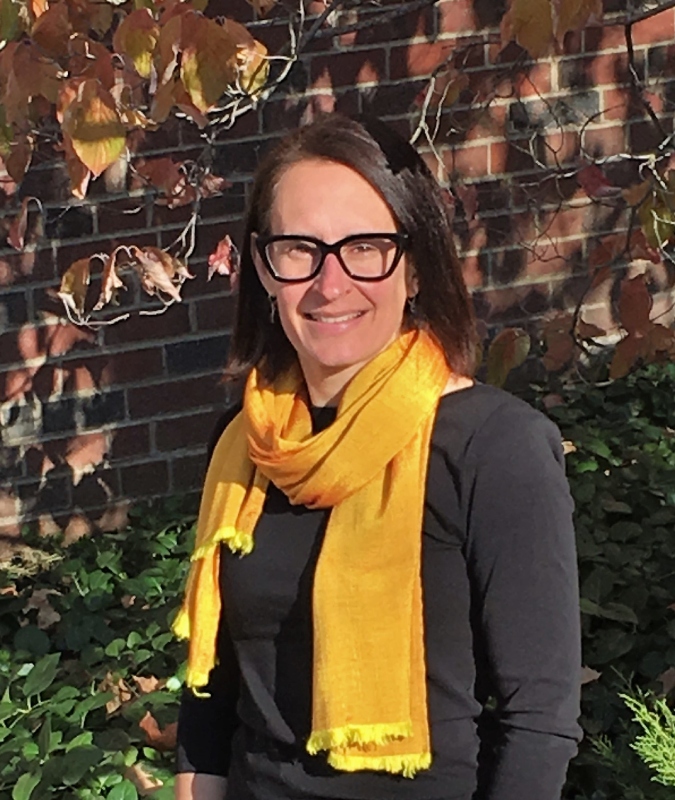
Liz Bageant is an applied economist with expertise in a wide range of topics related to human welfare and the environment. She uses a quantitative and qualitative analysis toolkit to understand how humans are impacted by and adapting to economic transformation and ecological change, and to understand policies and programs designed to improve lives.
Ms. Bageant employs a range of approaches, including quantitative modeling using micro-level data, and qualitative methods to identify appropriate quantitative approaches and deepen understanding and contextualize quantitative findings. She has applied these skills to a wide range of topics including index-based livestock insurance, rural agricultural and fishing livelihoods, international food assistance policy and a range of food security and nutrition topics. She has a strong background in the conceptual and technical skills to support transparent and reproducible research processes that generate high-quality, credible evidence for decision-making.
Ms. Bageant has extensive experience mentoring students and scholars from many backgrounds. Her own research career was jumpstarted through inspiring and effective mentorship as an undergraduate student and she has participated in formal and informal mentorship and advising of students ever since. In addition to working closely with students, she led the STAARS and STAAARS+ Fellowship Program from 2016 to 2021, collaborating on research with and providing technical training to 40 early-career African agricultural economists.
Ms. Bageant was born and raised in northern Idaho.
M.S., Agricultural Economics, Cornell University, 2014
B.S., Development Sociology, Cornell University, 2010
H Okronipa, E Bageant, J Baez, HO Onyango, CM Aura and KJ Fiorella (2023). COVID-19 experiences of small-scale fishing households: The case of Lake Victoria, Kenya. Frontiers in Sustainable Food Systems.
KL Schreiber, CB Barrett, E Bageant, A Shimeles, JB Upton and M DiGiovanni (2022). Building research capacity in an under-represented group: The STAARS Program experience. Applied Economic Perspectives and Policy.
Eds: CB Barrett, T Benton, J Fanzo, M Herrero, RJ Nelson, E Bageant, E Buckler, K Cooper, I Culotta, S Fan, R Gandhi, S James, M Kahn, L Lawson-Lartego, J Liu, Q Marshall, D Mason-D’Croz, A Mathys, C Mathys, V Mazariegos-Anastassiou, A Miller, K Misra, A Mude, J Shen, LM Sibanda, C Song, R Steiner, P Thornton and S Wood (2022). Socio-technical innovation bundles for agri-food systems transformation. Open access book.
KJ Fiorella, E Bageant, K Ordonez, M Kim, S Thilsted, and CB Barrett (2021). Fishers’ Response to Temperature Change Reveals the Importance of Integrating Human Behavior in Climate Change Analysis. Science Advances.
KJ Fiorella, E Bageant, L Mojica, JA Obuya, J Ochieng, P Olela, PW Otuo, HO Onyango, C Aura and H Okronipa (2021). Small-scale fishing households facing COVID-19: the case of Lake Victoria, Kenya. Fisheries Research: 237.
KB Amolegbe, JU Upton, E Bageant and S Blom (2021). Food price volatility and household food security: Evidence from Nigeria. Food Policy.
CB Barrett, TG Benton, KA Cooper, J Fanzo, R Gandhi, M Herrero, S James, M Kahn, D Mason-D’Croz, A Mathys, RJ Nelson, J Shen, P Thornton, E Bageant, S Fan, AG Mude, LM Sibanda and S Wood (2020). Bundling innovations to transform agri-food systems. Nature Sustainability, 3.
E Bageant and CB Barrett (2017). Are there Gender Differences in Demand for Index Based Livestock Insurance? Journal of Development Studies, 53(6).
E Bageant and Y Liu (March 2016). Agriculture-Nutrition Linkages and Child Health in the Presence of Nepal’s Civil Conflict. IFPRI Discussion Paper 01515.
E Bageant, CB Barrett and E Lentz (2010). Food Aid and Agricultural Cargo Preference. Applied Economics Perspectives and Policy. Winter 2010, 32(4): 624-641.
C Barrett, E Bageant and E Lentz (Dec. 3, 2010) When ‘Buy American’ Harms America. The Washington Post.
Crystal Callahan is an expert in qualitative analysis and ethnographic research, linking evidence to real world actions and outcomes. Her research explores the intersections of natural resource management, public policy construction and culture, and has spanned Alaskan salmon fishing industry to Idaho collaborative governance efforts. Ms. Callahan is focused on understanding policy construction within state, federal and international frameworks while working with communities in her home state.
At the McClure Center, Ms. Callahan leads undergraduate student programs, participates in collaborative governance research and facilitation, fosters external partnerships and ensures the McClure Center is able to create impactful programs that further policy conversations in Idaho.
In 2022, she was elected vice chair for University of Idaho Staff Council and serves on several University of Idaho working groups.
M.S., Anthropology, Idaho State University, 2011
B.A., Anthropology, Idaho State University, 2005
C Callahan and KE Himes (2022). "Natural Resource Policy and Collaborative Processes." Idaho Law Review 58 (1): 74-90.
G Whitney, C Callahan and KE Himes (2021). Early Childhood Care and Education in Idaho: Idaho Preschool Development Grant Birth-Age 5 Needs Assessment. Report submitted to Idaho Association for the Education of Young Children and Idaho Early Childhood Advisory Council, February 2021.
C Callahan and G Whitney (2020). Idaho at a Glance: Housing Insecurity. University of Idaho.
C Callahan (2019). Idaho at a Glance Hispanics: An Overview. University of Idaho.
C Callahan (2011). Living Policy: Alaska Salmon Fishers’ Engagement in Policy Construction [Master’s Thesis]. Idaho State University.
Crystal Callahan, M.S.
Operations Director
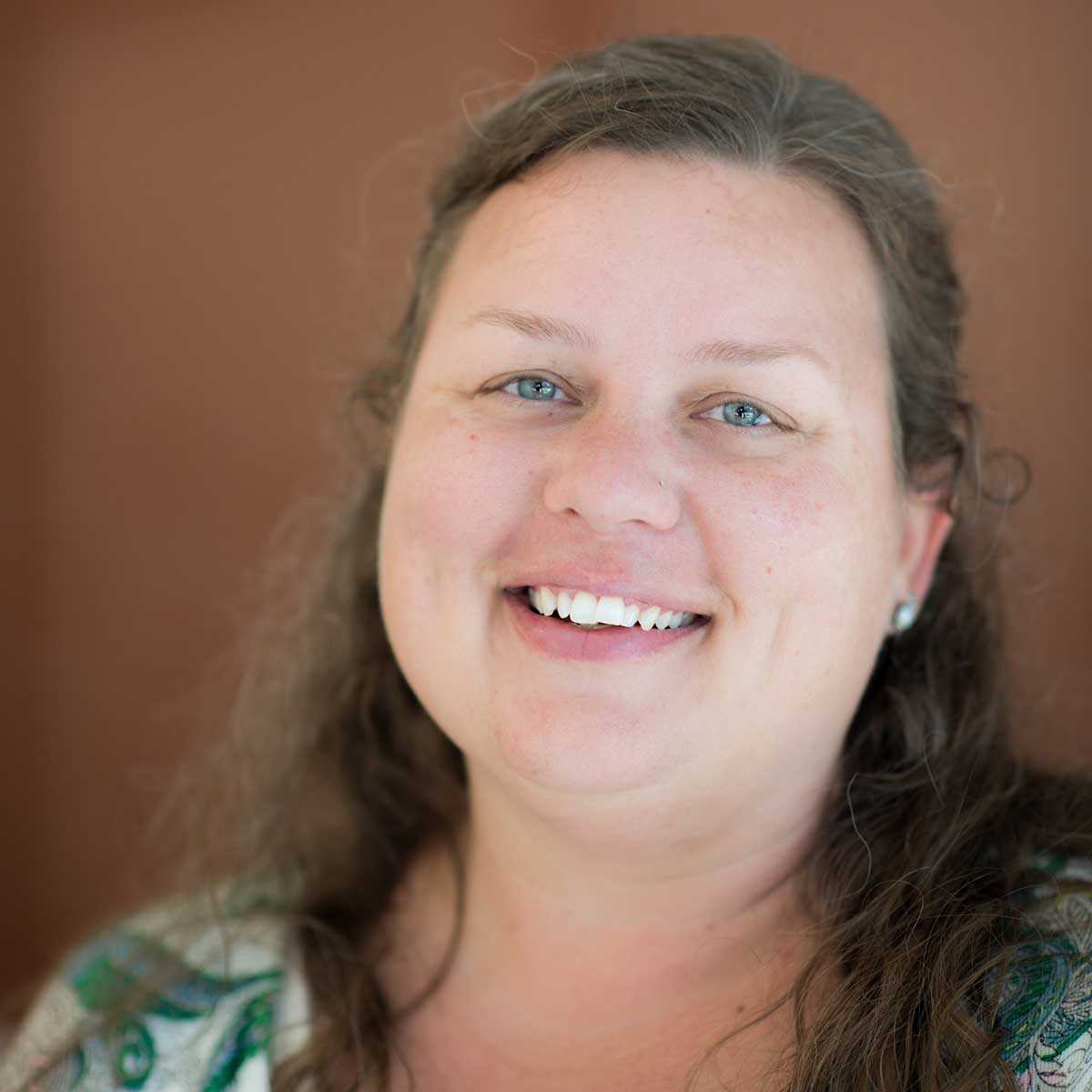
Megan Foster, Ph.D. is a multi-method geographer who specializes in public engagement and collaborative governance in public policy. Her work involves complex project management across large multi-stakeholder teams. She also has broad experience in outreach — translating and communicating technical information for non-technical diverse audiences.
After finishing her Bachelor of Arts in environmental studies and planning at Sonoma State University, Dr. Foster went on to complete both her Master of Science in community development and doctorate in geography at the University of California, Davis. Her graduate research work at UC Davis centered around collaborative governance and public lands management, by specifically exploring the role of Federal Advisory Committees within the U.S. National Park Service.
Dr. Foster’s most recent work focused on managing the Idaho Climate-Economy Impacts Assessment while a postdoctoral fellow at the McClure Center. She co-directs the Idaho Science and Technology Policy Fellowship (ISTPF), supervises law student externs and contributes to overall efforts within the McClure Center.
Dr. Foster currently serves on the Steering Committee for the University Network on Collaborative Governance (UNCG).
Ph.D., Geography, University of California—Davis, 2020
M.S., Community Development, University of California—Davis, 2015
B.A., Environmental Studies and Planning, Sonoma State University, 2013
K Donahue and M Foster (Nov. 2022). Idaho at a Glance: Idaho’s Economy & Climate Change. University of Idaho.
M Foster and AS Kolok (2022). Idaho’s Economic Climate Change Assessment. American Water Resources Association 24(5).
M Foster (2020). Examining Collaboration within U.S. National Park Service Advisory Committees. Journal of Park and Recreation Administration 38(4).
M Foster and LA Watt (2019). More Than “The Public”: A Case Study of Resident Inclusion in Decision-making at Point Reyes National Seashore. Case Studies in the Environment 3(1).
LN Long, M Foster and G Arnold (2019). The Impact of Stakeholder Engagement on Local Decision Making. Policy Sciences 52: 549-571.
T Ruseva, M Foster, G Arnold, S Siddiki, A York, R Pudney and Z Chen (2019). Applying Policy Process Theories to Environmental Governance Research: Themes and New Directions. Policy Studies Journal 47(1).
M Foster (2016). Point Reyes National Seashore: A Brief History of a Working Landscape. American Association of Geographers Newsletter.
Megan Foster, Ph.D.
Program Director | Research Scientist
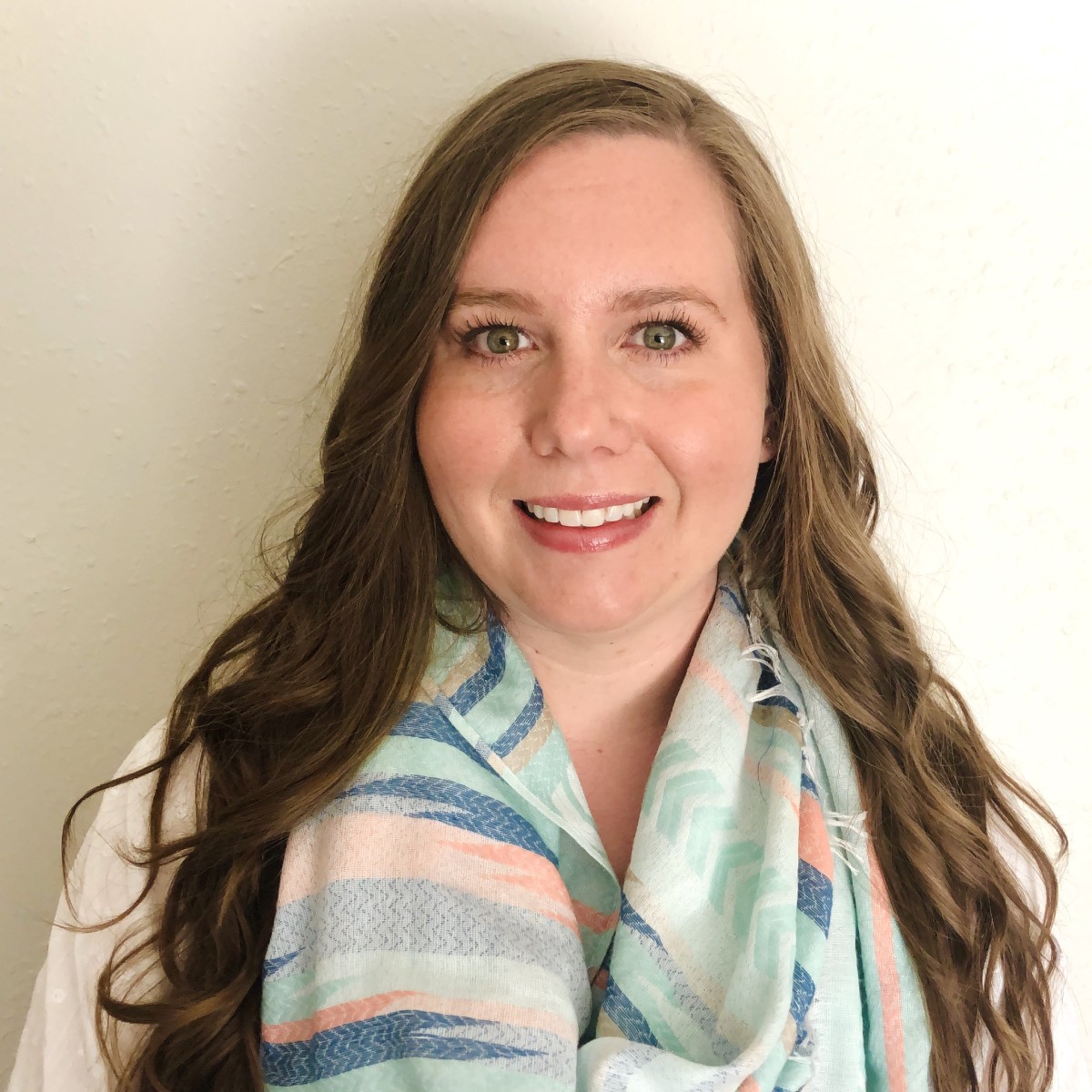
514 W Jefferson Street | Boise, Idaho
Kate Walker is a development professional with a background in natural resource policy. She holds a Bachelor of Arts degree in English from Boise State University and a Master of Public Administration (MPA) from Idaho State University. Kate began her professional journey in Washington, D.C., where she served under U.S. Senator Mike Crapo (R-ID). Later, she transitioned to a consulting firm specializing in the representation of irrigation districts across the western U.S., where she demonstrated her expertise in water resource policy.
Upon moving back to Idaho, Kate took on a pivotal role within the University of Idaho's central advancement team as an assistant director of development in January 2023. Within this capacity, she has expanded her focus to include development work at the McClure Center. Kate is enthusiastic about leveraging her skills to engage with Idahoans who share an interest in supporting nonpartisan policy research and advancing the McClure Center’s mission.
Kate was born and raised in Boise, Idaho.
B.A., English, Boise State University, 2013
MPA, Idaho State University, 2016
Kate Walker, MPA
Associate Director of Development
